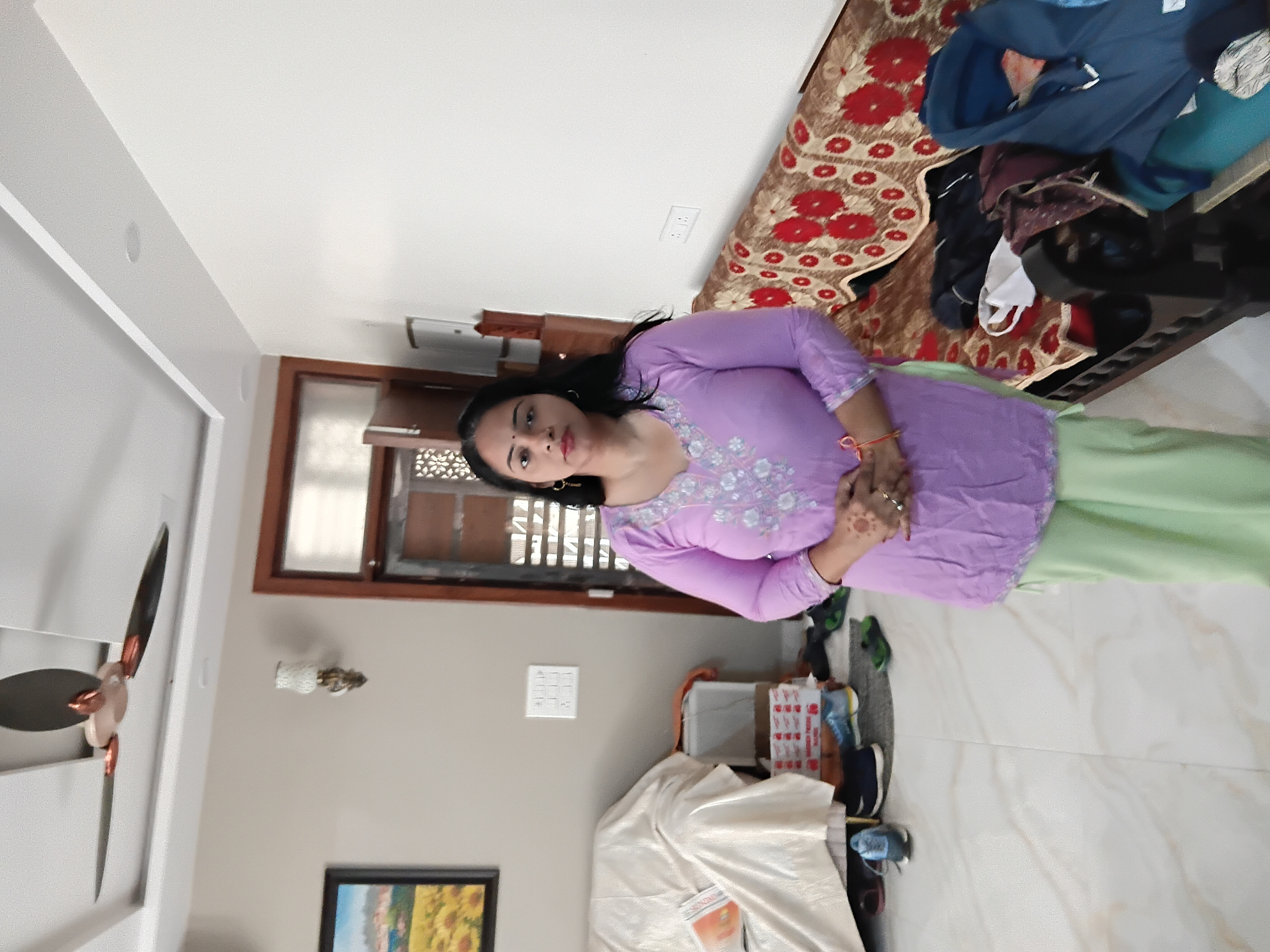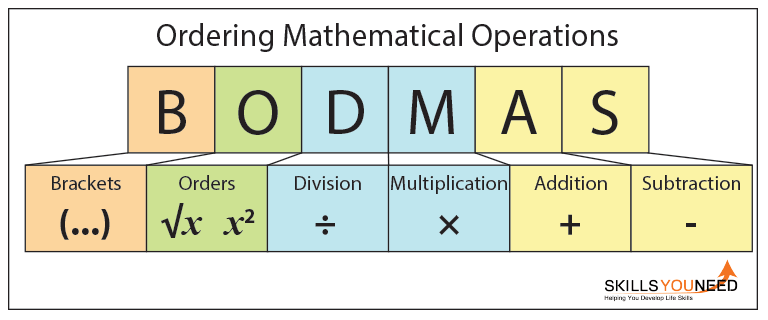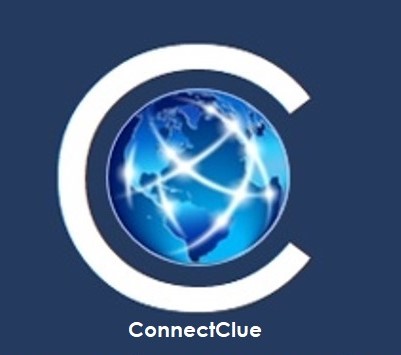Monthly trending articles on ConnectClue


Post updated on: Sep 8, 2021 10:18:58 PM

- Cash Payment (which also include money order,
travelers cheque).
- Credit Card/Debit Card Payment (which are accepted only
if the cards have not expired).
- Cheque Payment (where post-dated cheques are not
accepted).
- Direct Billing.
- Special Payment such as gift card and voucher.
- The guests need to select one of the options of payment
at the time of registration.
Post updated on: Sep 6, 2021 7:13:21 PM

Post updated on: Sep 6, 2021 6:43:46 PM


Post updated on: Sep 6, 2021 6:38:57 PM
It is very wise to say that "Hospitality is all about being a Good Human Being. In Bhagwad Gita, it is very beautifully taught by our greatest Management Guru " Lord Krishna that a good human being can be identified by attitude towards people, all other living beings, and towards the entire environment and attitude towards one's own Path to the Perfection.
The great philosophers of the past have placed a great deal of emphasis on ethics not only in their lives, but also in their work.

Hospitality industry is a human centric industry; human resource plays an important role in providing services which contains interactions with guest. As all the operations contains intensive face-to-face interactions with clients: managers, supervisors and staff confront many ethical dilemmas in their day-to-day operations.
What is ethics?
Ethics are the principles and values used by an individual to govern his or her actions and decisions. Ethics and values are not confined to textbooks, their use in the hospitality industry is of immense magnitude. Ethics tries to create a sense of right and wrong in the organizations and often when the law fails, it is the ethics that may stop organizations from harming the society or environment.
Ethics are very important in an organization, it plays vital role in managing hotel services which can be achieved by:
1. Satisfying Basic Human Needs: It is good for staff for morale to work in an open culture, with possible benefits of increased productivity and staff loyalty. An organization known for fair and responsible practice is likely to attract high quality employees .
2. Good relationships with Guests based on a commitment to honesty and transparency will enhance a company's reputation. And so increase in revenue by making a long term relationship.
3. Competitive advantage- Hospitality is faced major challenges in terms of competition, In such a competitive world where hotels have all the facilities from products to software and technical implementations. There are certain ethical qualities that any hospitality professional must have :
Honesty , integrity , trustworthiness, loyalty, fairness, concern for others, commitment for excellence , leadership , reputation & accountability.
With the increase in competition there have been many unethical practices being followed in hotels , be it over booking of rooms to menu frauds. Etc.
Concern in the industry should not be to how to find these kind of individuals it must be, but how to inculcate these values and ethics in hospitality person.
This is where role of human resource comes in. Although the role of Human resource department has moved from just being a recruiting and selecting department to training , but still we find that most of the hotel don't take sessions on ethics for their employees.
Catering colleges can also play their part by inculcating ethics as a subject in the curriculum and it should not just be confined to our religious scriptures.
With the growth of hospitality industry and competition in the market, timely and paramount service becomes a necessity to the guest , which creates a lot of pressure on the staff, therefore to meet these expectations ethics in services and operations are always kept on stake.
with all the hotels sharing same technological advancements and procedures the only sense of competition can be the ethical employees.
Post updated on: Sep 5, 2021 3:11:32 AM



Post updated on: Sep 3, 2021 12:34:08 AM



Post updated on: Sep 2, 2021 12:16:24 AM


Post updated on: Sep 2, 2021 12:16:01 AM


Post updated on: Sep 2, 2021 12:14:56 AM


Job
Description
Job
description is an informative documentation of the scope, duties, tasks,
responsibilities and working conditions related to the job listing in the
organization through the process of job analysis. Job description also details
the skills and qualifications that an individual applying for the job needs to
possess. It basically gives all the details which might be good for both the
company and the applicant so that both parties are on the same page regarding
the job posting. Basically, job analysis is bifurcated into two
components namely job description and job specification.
Why Orientation Is Important
for New Employees
Gifts and Prizes and Awards
?
Appreciation and recognition
Post updated on: Aug 31, 2021 5:31:01 PM
Abhyuthanam Adharmaysya, Tadatmanam Srijami Aham

This is a very renowned 'Shloka' we have all listened since our childhood days. At that time when we asked our parents what it actually meant, they told us that whenever there is the decay of righteousness and a rise of unrighteousness, then Lord Krishna came into existence. Lord Krishna is one of the greatest Management Gurus, whom we can emulate without a second thought.
What is Management?
In order to define what do we mean by Management "The conclusion from various studies says that" Management in all business and organizational activities is the act of getting people together to accomplish desired goals and objectives, efficiently and effectively. It comprises planning, organizing, staffing, leading or directing, and controlling an organization or effort for the purpose of accomplishing a goal. There were several theories generated related to management till date, but several writers created modern management theories, which includes Chanakya's Artha Shastra, Adam Smith?s The Wealth of Nation, Niccolo Machiavelli's The Prince.
The modern management concepts of vision, leadership, motivation, excellence in work, achieving goals, giving work meaning, decision making and planning, are all discussed in the Bhagavad Gita. It initiates the issues from the grass-root level of human thinking. Once the basic thinking of man is improved, it will automatically enhance the quality of his actions and their results.
We never heard Lord Krishna Theory of Management, as a part of modern management theories. Whereas, western universities have introduced the subject 'Lord Krishna Theory of Management' to teach the concept to their students. And also training departments of various enterprises, conduct their training sessions by giving examples of Lord Krishna skills. The Bhagavad Gita, written thousands of years ago, enlightens us on all managerial techniques leading us towards a harmonious state of affairs in place of conflict, tensions, poor productivity, and absence of motivation, and so on.
Lord Krishna's theory of management has become a part and parcel of an organizational structure. He had made two concepts on which whole management is based i.e. how to dance and how to make others dance. As he knows, how to be effective and whatever situation will be, how to be a winner.
Whereas when we talk about the hospitality industry, it requires, interacting with people, addressing their needs, and skill of tact, combined with knowledge and flexibility. Therefore management in hospitality looks for challenges with a positive attitude in employees.
Karmanye Vadhikaraste, Ma phaleshou Kada chana,
Ma Karma Phala Hetur Bhurmatey Sangostva Akarmani

This verse is from the Bhagawad Gita. And it is really something that we have always tried to follow in the hospitality industry:
Karmanye Vadhikaraste, Ma phaleshou Kada chana? You have a right to perform your prescribed duty, but you are not entitled to the fruits of actions
Ma Karma Phala Hetur Bhurmatey Sangostva Akarmani ? Never consider yourself the cause of the results of your activities and never be attached to not doing your duty.
In simple terms it means: Keep on performing your duties without expecting any reward in return, leading a selfless life? this it what it is all about. We can also conclude it in the way that actions, which is both efficient and effective, focused mind, self effort without expectation are few of the points incurred by Bhagavad Gita in management.
Few of the practices it implies are:
One of Lord Krishna's famous saying:
?A leader is not the one who walks but the one who leads walking ahead of others.?
Lord Krishna was perfect host and had great hospitality skills. To unveil this statement, every one had heard the storyline about his childhood friend, Sudama, who was hungry, impoverished and in rags, arrived at his palace. Lord Krishna personally washed his feet and fed him with his own hands.
The Bhagavad Gita was delivered by Sri Krishna to boost Arjuna's declining morale, motivation, confidence and to increase its effectiveness interpersonal conflict, which was to fight and not to fight the war at Kurukshetra, he played the role of teacher, HR trainer, guide developer, to revive Arjuna's motivation.
His communication skills are evident in every word. Lord Krishna during his negotiations, to avoid war between Kauravas and Pandavas demonstrated perfect communication skills. As he doesn't want to avoid war between them, he manipulated his words and tried to instigate fear motivation in Duryodhana by way of illustrating the greatness of Pandavas on and off the field of war.
Lord Krishna gave not only spiritual enlightenment but also the art of self management, conflict management, stress and anger management, transformational leadership, motivation, goal setting and many other aspects of management, which can be used as a guide to increase Human Resource Management (HRM) effectiveness. Unlike the western approach to HRM, which focuses on exploring the external world of matter and energy the Bhagavad Gita recommends a HRM approach, which focuses on exploring the inner world of self.
Krishna as a CEO of the World Organization
In current world, Krishna's leadership is a most fascinating and useful. He had demonstrated leadership of very high quality, which had made him a significant leader. That is why he is followed by millions of disciple still today, in his absence. Bhagavad Gita contains many leadership lessons that are similar to contemporary leadership theories and practices. Consider some of these lessons embedded within the Gita as a sermon are as:
Leaders should embrace rather than avoid challenges because they bring out the leaders' greatest strengths. They should be resilient in their actions and should not be weakened by pain and pleasure. Effective leaders do not lead by fear or anger. Character is core to effective leadership they need to be aware of the self and the surroundings .
Other sermon says:
"Whatever the leader does, the followers will follow and whatever standards or example the leader sets people in general will follow."
In Bhagavad Gita, Krishna defines three specific disciplines that are required for effective leadership: discipline of learning, discipline of speaking properly and discipline of equanimity (steadiness of mind under stress). All these are important for effective leadership. Today's leadership authorities also agree that effective leaders have to be effective learners. Leadership is not only about teaching people to follow a certain path or to do a certain thing, but it is also about learning things to be taught. Likewise, without effective communication skills, leadership cannot become effective. Krishna says, the most important part of communication is to communicate with honesty and with respect toward others.
Setting Organizational Culture
Manager should be good in Direction and Controlling. Controlling an army of 1.53 million soldiers and warriors to fight against a bigger army was not an easy task for anyone. This was all made possible with the help of Lord Krishna's great Managing and Controlling Skills. A sermon from Bhagavad Gita says:
In the chariot of the body, the five horses represent the five senses (tongue, eyes, ears, nose and skin), the reins, the driving instrument, symbolise the mind, the driver is the intelligence and the passenger is the self.
Managers should use their intelligence to control their mind, they should not let the mind to be control by the senses.
Motivation- Satisfying lower order needs of workers - adequate food, clothing and shelter, etc. are key factors in motivation. However, it is a common experience that the dissatisfaction of the Top and of the Lower is identical -- only their scales and composition vary. It should be true that once the lower-order needs are more than satisfied, the Top should have little problem in optimising his contribution to the organisation and society. This situation is explained by the theory of self-transcendence propounded in Bhagavad Gita.
An article in The Hindu in 2008 mentioned:
Delhi Metro Rail Corporation (DMRC) focuses on 'sticking to ethics in the workplace.'
DMRC does not believe in intense vigilance nor does it rely on hidden cameras to plug leaks and nab wrongdoers. Instead the organization has turned to Bhagavad Gita to stem corruption, lethargy and negligence.
Putting the accent on 'sticking to ethics in the workplace, the organization is attempting to instill the values of honesty, moral virtues of hard work and diligence as preached in Bhagavad Gita, which has now emerged as a guidebook for motivating numbers-driven managers. So to help enhance the spiritual quotient of the employees and to ensure that they steer clear of dishonesty and vice, there are frequent talks and lectures by motivational gurus and a handbook with relevant message.
E Sreedharan, Managing Director, DMRC is a believer of the values that the Bhagavad Gita preaches. DMRC officials say Sreedharan's messages to his employees are peppered with references from the holy book.
Asked if the exercise in spirituality has produced tangible results, a senior official says, "The feedback so far has been positive. The workforce has benefited from the sessions and lectures. There is positive energy, team spirit and no instances of financial bungling, missed deadlines, and de-motivated workers,' adds a senior official of DMRC.
Bhagavad Gita is easily the best treatise on management, which has solution to several practical issues like redesigning the organization, setting directions, developing people.
Whether it is human behavior, organizational behavior, group theory, motivational theory, game theory, management by objectives or line of control, all facets of modern management can be discovered in Lord Krishna theory of management.
Nobody is perfect, even Lord Krishna. He also acted like human being in many situations. To help mankind without any selfish motive, one can lie here and there and can manipulate if the situation demands. Krishna took some decisions only to prove this point. That is why Lord Krishna is a complete man and an apostle of life skills. And thus, we can call him. The Greatest Manager in the World?. To succeed in professional and personal life, one has to learn and try to emulate Lord Krishna. Today it has found its place as an alternative to the theory of modern management and also as a means to bring back the right path of peace and prosperity for human being.
Post updated on: Aug 31, 2021 5:20:17 PM
The presentation has to be shared or presented on the day of practical examination.
| S. No | Enrollment No | Name | Presentation Topic's | Remarks | Journal Remarks |
| 1 | 00211002217 | Explain the numerical | Calculate the occupancy percentage for a 350 rooms hotel which sells 245 rooms On a certain date if 25 rooms were blocked for spring cleaning and 25 rooms for renovation. | Checked | |
| Design a brochure for different packages offered by a: | |||||
| 2 | 00311002217 | Resort on a beach | Checked | ||
| 3 | 00411002217 | Business Hotel in a city | Checked |
||
| 4 | 00511002217 | Hotel in a Pilgrimage City | Checked |
||
| 5 | 00611002217 | Create a duty roster for front office department of a 4 star hotel having 200 rooms | Make it in Excel. | Checked |
|
| 6 | 00811002217 | Explain the concept of Commissioning : OTA Model-(Merchant) | Make PPT . Refer Online Travel agency Models |
Checked |
|
| 7 | 00911002217 | Designing chart-New strategies in hotels towards revenue enhancement. | Combined task | Checked |
|
| 8 | 01011002217 | Checked |
|||
| 9 | 01111002217 | Collect two situations of handling guest complaints and how to deal with it. | Combined task | Checked |
|
| 10 | 01211002217 | Checked | |||
| 11 | 01311002217 | Explain the concept of Commissioning : OTA Model-(Opaque) | PPT | Checked |
|
| 12 | 01411002217 | Explain the concept of Commissioning : OTA Model-(Agency) | PPT | Checked |
|
| 13 | 01811002217 | Explain the numerical ( Numerical no 1) | https://imgur.com/a/6cBjLCp |
Not Checked | |
| 14 | 01911002217 | Explain the numerical ( Numerical No 2) | https://imgur.com/a/6cBjLCp |
Checked |
|
| 15 | 02211002217 | Plan a training schedule for 15 employees of front office department of a five star hotel. | Checked |
||
| 16 | 02311002217 | Case study | Explain the case and answer Q1 from the mentioned blog- An effective methodology for front office training: Case study method | Checked |
|
| 17 | 02411002217 | Answer the rest question from the above case. | Checked | ||
| 18 | 02511002217 | Auditing of bill statements | Combined task- Link for reference - Auditing of bill statements | Checked | |
| 19 | 02611002217 | Auditing of bill statements | Checked |
||
| 20 | 02711002217 | Write a regret letter to a guest who is not satisfied with some parts of services. | Make a guest complaint and prepare a regret letter. | Checked | |
| 21 | 02911002217 | Explain Six Sigma | PPT | Not Checked | |
| 22 | 03011002217 | Explain the numerical- Numerical no 1 | https://imgur.com/a/nhqRPtY | Checked |
|
| 23 | 03111002217 | Explain the numerical- Numerical no 2 | https://imgur.com/a/nhqRPtY | Checked |
|
| 24 | 03311002217 | Explain the numerical- Numerical no 3 | https://imgur.com/a/nhqRPtY | Not Checked | |
| 25 | 03411002217 | Present few live examples of Employee Empowernment | Make a video | Checked |
|
| 26 | 03511002217 | Environment friendly Practices followed by hotels. | Checked |
||
| 27 | 03611002217 | ARR and RevPar | Make it in Excel. | Not Checked | |
| 28 | 03811002217 | Explain the concept of Commissioning : OTA Model-(Merchant) | Make PPT . Refer Online Travel agency Models. | Checked |
|
| 29 | 03911002217 | Designing chart-New strategies in hotels towards revenue enhancement. | Combined task | Checked |
|
| 30 | 04011002217 | Checked |
|||
| 31 | 04111002217 | Collect two situations of handling guest complaints and how to deal with it. | Combined task | Checked |
|
| 32 | 04311002217 | Checked | |||
| 33 | 04411002217 | Explain the concept of Commissioning : OTA Model-(Opaque) | Make PPT . Refer Online Travel agency Models. | Checked |
|
| 34 | 04511002217 | Explain the concept of Commissioning : OTA Model-(Agency) | Make PPT . Refer Online Travel agency Models. | Checked | |
| 35 | 04711002217 | Explain the numerical- Numerical no 2 | https://imgur.com/a/nhqRPtY | Checked |
|
| 36 | 04811002217 | Explain the numerical- Numerical no 3 | https://imgur.com/a/nhqRPtY | Checked |
|
| 37 | 04911002217 | Plan a training schedule for 15 employees of front office department of a five star hotel. | Not Checked | ||
| 38 | 05011002217 | Case study | Explain
the case and answer q1 from the
mentioned blog- An effective methodology for front office training: Case study method |
Checked | |
| 39 | 05111002217 | Answer the rest questions of the above case | Checked |
||
| 40 | 05211002217 | Auditing of bill statements | Combined task- Link for reference - Auditing of bill statements | Checked |
|
| 41 | 05311002217 | Auditing of bill statements | Checked | ||
| 42 | 05411002217 | State the advantage of sending a regret letter to a guest who is not satisfied with some parts of services. | Not Checked | ||
| 43 | 05511002217 | Explain Six Sigma | PPT | Checked |
|
| 44 | 05611002217 | Numerical no 4 | https://imgur.com/a/nhqRPtY | Checked | |
| 45 | 05711002217 | Numerical no 5 | https://imgur.com/a/nhqRPtY | Not Checked | |
| 46 | 05811002216 | Explain Employee Motivation techniques | Make PPT Refer : Front Office | Checked | |
| 47 | 05811002217 | Why Orientation Is Important for New Employees | Make PPT Refer : Front Office | Checked |
|
| 48 | 05911002217 | Explain Job Description and Specification in Front Office department | Make PPT Refer : Front Office | Checked | |
| 49 | 06011002217 | Hiring process, Recruitment and selection | Make PPT Refer : Front Office | Checked | |
| Design a brochure for different packages offered by a: | |||||
| 50 | 06211002217 | Heritage property for business purpose | Checked |
||
| 51 | 06411002217 | Business Hotel in a city | Checked |
||
| 52 | 06511002217 | Hotel in a Pilgrimage City | Not Checked | ||
| 53 | 06611002217 | Create a duty roster for front office department of a 5 star hotel having 400 rooms | Checked | ||
| 54 | 06711002217 | TQM Practices followed by hotels. | PPT | Checked |
| 55 | 06911002217 | Explain the numerical | Calculate the occupancy percentage for a 350 rooms hotel which sells 245 rooms On a certain date if 25 rooms were blocked for spring cleaning and 25 rooms for renovation. | Checked | |
| 56 | 07111002217 | TQM practices followed by hotels | Checked |
||
| 57 | 07211002217 | Design a brochure for different packages offered by a Resort on a beach | Checked |
||
| 58 | 07411002217 | Design a brochure for different packages offered by a Business Hotel in a city | Checked | ||
| 59 | 07511002217 | Design a brochure for different packages offered by a Hotel in a Pilgrimage City | Checked |
||
| 60 | 07911002217 | Create a duty roster for front office department of a 4 star hotel having 200 rooms | Make it in Excel. | Checked | |
| 61 | 08011002216 | Explain the concept of Commissioning : OTA Model-(Merchant) | Make PPT . Refer https://www.connectclue.com/article/details/TTUR2351622127837335/online-travel-agency-models- | Checked |
|
| 62 | 08011002217 | Designing chart-New strategies in hotels towards revenue enhancement. | Combined task | Checked |
|
| 63 | 08111002217 | Checked |
|||
| 64 | 08211002217 | Collect two situations of handling guest complaints and how to deal with it. | Combined task | Not Checked | |
| 65 | 08311002217 | Not Checked | |||
| 66 | 08411002217 | Explain the concept of Commissioning : OTA Model-(Opaque) | Make PPT . Refer https://www.connectclue.com/article/details/TTUR2351622127837335/online-travel-agency-models- | Checked |
|
| 67 | 08511002217 | Explain the concept of Commissioning : OTA Model-(Agency) | Make PPT . Refer https://www.connectclue.com/article/details/TTUR2351622127837335/online-travel-agency-models- | Checked | |
| 68 | 08611002217 | Explain the numerical | https://imgur.com/a/6cBjLCp | Checked |
|
| 69 | 08711002217 | Explain the numerical | https://imgur.com/a/6cBjLCp | Checked |
|
| 70 | 08811002217 | Plan a training schedule for 15 employees of front office department of a five star hotel. | Not Checked | ||
| 71 | 08911002217 | Case study | Explain
the case and answer q1 from the
mentioned blog-
https://www.connectclue.com/article/details/BLUR2351624430225491/an-effective-methodology-for-front-office-training--case-study-method |
Checked |
|
| 72 | 09011002217 | Answer the rest questions of the above case | Checked |
||
| 73 | 09211002217 | Auditing of bill statements | Combined task- Link for reference https://www.connectclue.com/article/details/TTUR2351622048546652/auditing-of-bill-statements | Checked | |
| 74 | 09311002217 | Auditing of bill statements | Checked |
||
| 75 | 09411002217 | State the advantage of sending a regret letter to a guest who is not satisfied with some parts of services. | Checked | ||
| 76 | 09511002217 | Explian Six Sigma | PPT | Checked |
|
| 77 | 09611002217 | Explain the numerical- Numerical no 1 | https://imgur.com/a/nhqRPtY | Checked | |
| 78 | 09711002217 | Explain the numerical- Numerical no 2 | https://imgur.com/a/nhqRPtY | Not Checked | |
| 79 | 09811002217 | Explain the numerical- Numerical no 3 | https://imgur.com/a/nhqRPtY | Checked | |
| 80 | 09911002217 | Present few live examples of Employee Empowernment | Make a video | Checked | |
| 81 | 10111002217 | Environment friendly Practices followed by hotels. | Checked |
||
| 82 | 10211002217 | ARR and RevPar | Make it in Excel. | Checked |
|
| 83 | 10311002217 | Explain the concept of Commissioning : OTA Model-(Merchant) | Make PPT . Refer https://www.connectclue.com/article/details/TTUR2351622127837335/online-travel-agency-models- | Checked |
|
| 84 | 10411002216 | Designing chart-New strategies in hotels towards revenue enhancement. | Combined task | Checked |
|
| 85 | 10511002217 | Checked |
|||
| 86 | 10611002217 | Collect two situations of handling guest complaints and how to deal with it. | Combined task | Checked | |
| 87 | 10711002217 | Checked |
|||
| 88 | 10811002217 | Explain the concept of Commissioning : OTA Model-(Opaque) | Make PPT . Refer https://www.connectclue.com/article/details/TTUR2351622127837335/online-travel-agency-models- | Checked |
|
| 89 | 10911002217 | Explain the concept of Commissioning : OTA Model-(Agency) | Make PPT . Refer https://www.connectclue.com/article/details/TTUR2351622127837335/online-travel-agency-models- | Checked | |
| 90 | 11011002217 | Explain the numerical- Numerical no 2 | https://imgur.com/a/nhqRPtY | Checked |
|
| 91 | 11111002217 | Explain the numerical- Numerical no 3 | https://imgur.com/a/nhqRPtY | Checked |
|
| 92 | 11211002217 | Plan a training schedule for 15 employees of front office department of a five star hotel. | Checked |
||
| 93 | 11311002217 | Case study | Explain
the case and answer q1 from the
mentioned blog-
https://www.connectclue.com/article/details/BLUR2351624430225491/an-effective-methodology-for-front-office-training--case-study-method |
Checked | |
| 94 | 11411002217 | Answer the rest questions of the above case | Checked | ||
| 95 | 11511002217 | Auditing of bill statements | Combined task- Link for reference https://www.connectclue.com/article/details/TTUR2351622048546652/auditing-of-bill-statements | Checked |
|
| 96 | 11611002217 | Auditing of bill statements | Checked |
||
| 97 | 11711002217 | State the advantage of sending a regret letter to a guest who is not satisfied with some parts of services. | Checked |
||
| 98 | 11811002217 | Explain Six Sigma | PPT | Not Checked | |
| 99 | 11911002217 | Numerical no 4 | https://imgur.com/a/nhqRPtY | Checked |
|
| 100 | 12011002217 | Numerical no 5 | https://imgur.com/a/nhqRPtY | Checked | |
| 101 | 12111002216 | Explain Employee Motivation techniques | Make PPT Refer :https://www.connectclue.com/article/details/TTUR2351625539227362/front-office- | Not Checked | |
| 102 | 12111002217 | Why Orientation Is Important for New Employees | Make PPT Refer :https://www.connectclue.com/article/details/TTUR2351625539227362/front-office- | Checked |
|
| 103 | 12211002217 | Explain Job Description and Specification in Front Office department | Make PPT Refer :https://www.connectclue.com/article/details/TTUR2351625539227362/front-office- | Checked |
|
| 104 | 12311002217 | Hiring process, Recruitment and selection | Make PPT Refer :https://www.connectclue.com/article/details/TTUR2351625539227362/front-office- | Checked | |
| 105 | 12411002217 | Job Description and Job Specification of RDM | Checked |
||
| 106 | 12511002217 | Design a brochure for different packages offered by a Heritage property for business purpose | Checked |
||
| 107 | 50111002217 | Design a brochure for different packages offered by a Business Hotel in a city | Checked |
||
| 108 | 50211002217 | Design a brochure for different packages offered by a Hotel in a Pilgrimage City | Checked |
||
| 109 | 75111002217 | Create a duty roster for front office department of a 5 star hotel having 400 rooms | Checked |
Post updated on: Aug 14, 2021 1:58:35 AM






Post updated on: Aug 2, 2021 1:48:10 PM

Post updated on: Jul 18, 2021 3:41:14 PM
Front office management being an objective oriented subject, involves planning, decision making, innovation, revenue maximization, controlling and customer focused services. It is all about great ideas, people and achievement and therefore requires the mixture of both; art and science.
A front office personnel plays a key role in meeting the guest?s needs. He/ she effectively meet various challenges which help the hotel to satisfy its guests and when their training is conducted inefficiently, after completion it seems as if the trainee?s have donated their blood and they are completely drained out. Nowadays, trainees demand innovation in learning.
Case studies are a pace to move forward to advance teaching. It presents a new dimension to the trainees by giving broader concept of the operations. From the time a guest makes a reservation and arrives at a hotel through the time he or she departs, may form various cases. For example, guest turning to front office with questions, requests, comments and complaints. It brings together the theoretical inputs and hand on practical exercises and divert the trainee?s mind beyond their thinking level.
A case study is a puzzle that has to be solved to achieve best possible option in respective situation. A good case study makes the trainees realize as if they are the part of the scenario and commence them to think for more innovative ideas. The case should have enough information in it that readers can understand what the problem is and after thinking and analyzing the information; the readers should be able to come up with a proposed solution. Mostly real case studies put more strength than fictitious cases as they are the real examples of an organization which includes the relevant data and adds to the trainee?s interest. which includes the relevant data and adds to the trainee?s interest.
Just Imagine, if a trainer says, ?This is my real life example when I was with XYZ hotel, please tell me what you would have done if it ever came to you?. Don?t you think they would provide us more innovative ideas to defeat us?
Before conducting a case study in the training, it is very crucial to properly select a case. Should the case study be related to Customer Service, PMS, Reservation of a group or welcoming a walk-in? We must try to relate it with the previous topic discussed as well as with the current one. It will help the trainee?s to recall and brush up all the topics with a LIVE example. Case study research excels at bringing us to an understanding of a complex issue and can extend experience or add strength to what is already known through previous research.
It is a good practice to distribute the case study at the end of the session and ask them to go through and discourse it next day, which will help them to grasp more and more ideas. As per a research, a case study requires a minimum of two hours to hash out.
Before starting to refer a case, first think of several important ?design? questions:
What are theories or concepts of hospitality you are going to teach through the case?
How would trainees react to the case? Is it sufficiently challenging and interesting?
Is the case relevant for all the theoretical inputs required to learn a topic?
Would the case help in brain storming of the trainees?
Do we have the proper solution to the questions of the case?
Will the case study help the trainee?s in relating it with other topics as well?
Case will need a conclusion. Rather than putting answer in the case, leave the trainee?s with some more questions. It is not about correction in the answers given by the audience, as everyone has different skills to handle a situation. And since no two guests, two hotels are ever the same and so no manager has the same qualities; they have their different opinion about a situation and different strength to handle it. The variety of talent and skills are needed to satisfy guest needs which makes to front office work exciting and challenging.
The case method is a powerful approach to teaching and learning hospitality subjects. Its main advantage is that it is ?problem-oriented?, as opposed to solution-based, approach to teaching and learning. It allows trainees to participate in ?real-life? decision making processes by first identifying the major ?problem? in the case before formulating appropriate solutions.
Seeing the nature and importance of front office department, case study is one of the best methodologies to produce empowered staff, who can take correct decisions in different situations.
Case Study:
Is overbooking important than frequent-stay guest?
Occupancy has been so high that year, that the hotels had regretted a large number of reservations.
In 2006, a group of eight men from a leading MNC group did not agree to check in, due to poor efficiency of front office department to reserve rooms for them. Seven single rooms were booked for these guests, one month prior to the date of arrival at a corporate rate. When they reached the hotel for check in at the reception at 2 am, the hotel refused to provide accommodation to four of the guests, due to non-availability of room.
The guests from the same company refused to check in, as the reservation was made for the entire group and not for four of them. The condition was worse because they were Frequent-Stay Guest (FSG) and this was not expected from the hotel.
The only suggestion the duty manager could give was to accommodate four of them in a double deluxe room (two double beds in a room). The guests were irritated and asked to call front office manager, who was not available. They started shouting, ?We had already received confirmation from you. Does it make no sense to you? We are not going to check in, till your manager comes to the hotel.?
They all sat in the lobby, waiting for the front office manager to come. The front office manager was called by the duty manager in the night, and he spoke to the guest, apologised for the same and somehow the guests were accommodated in the same suite room and assured that they will be shifted to their reserved status room early morning and the check in was made accordingly.
The problem arose due to overbooking of rooms, due to which all rooms were occupied and led to guest dissatisfaction.
Questions
What do you think the front office manager would have said the guests?
Was the management failure here; if so what?
What further long-run action should management take?
What measures can you take to avoid the situation?
What should be the action of night shift staff for morning shift?

Post updated on: Jul 14, 2021 9:17:46 PM
- Organization-
Every company has a big hierarchy. And it is very essential to build a
strong organisation by hiring good and experienced employees and to train
them from time to time.
- Commitment-
Everyone from top to bottom objective must be to achieve the goal of the
organisation.
- Process-
Hotels follow standard operating procedures for every work. If everyone
follows the procedure provided by the employee, the system will be error
free.
- Leadership-
The hierarchy must have good leaders. Mostly companies are known by good
leaders and vice versa.
Business Process Re-Engineering (BPR)
-
Creating and identifying strategic business objectives
-
Creating core and sub processes
-
Identifying process owners
-
Creating and validating performance measures
-
Collecting data on performance measures
- Determining and prioritizing projects for improvement.
- Implementation of the Six sigma philosophy on the Front Office department of the hotel are:
-
To maintain optimal inventory
-
Minimize wastage/pilferage
-
Standardized output of Food and Beverage
-
Reduce the time from order to service
-
Optimal utilization of current product mix (F&B/Outlets) to
increase revenue.
Post updated on: Jun 23, 2021 2:49:55 AM
1. Merchant
Model
- Travelocity
/ Lastminute / Top Secret Hotels
- Getaroom.com / Unpublished Rates
- booking / Hidden hotel
- GTAHotels.com / Mystery hotel
- hotel.de / hotel Roulette
- HotelsCombined.com / hotel Roulette
- TravBuddy.com / hotel Roulette
- Easyclicktravel.com / Off The Record
- HotelDirect.co.uk / Hidden Gem/ Hotels
- BookIt.com / Mystery hotel
- SuperBreak.com / Mystery Hotels
- Wotif.com / Wot hotel
Post updated on: May 28, 2021 5:58:48 PM
Assurance:
Empathy
Tangibles:
Post updated on: May 27, 2021 2:05:55 PM
- Expanding the Environmental
Management Standards to more and more businesses areas
- Enrichment by managing more
and more processes, products, resources and activities
- Upgrading to improve the
organizational and structural framework of the EMS.
Post updated on: May 25, 2021 1:39:35 AM
Discover your area of interest
Advertisement
Art & entertainment
Astrology & spirituality
Cooking
Culture
Current affairs
Education
Fashion
History
Hotel management
Industry
Medical & fitness
Motivational
Politics
Real life stories
Sports
Story & poetry
Technology
Top in search
Tourism
More recent categories
Pentobarbital achat en Suisse(Public)
By: luc
Acheter Nembutal en France(Public)
By: luc
Euthanasie Nembutal Belgique(Public)
By: luc
Nembutal Achat en Belgique(Public)
By: luc
Nembutal achat en France(Public)
By: luc
Pentobabarbital achat France(Public)
By: luc
Euthanasie Nembutal en France(Public)
By: luc
Gold for sale(Public)
By: Tole
Gold Nuggets(Public)
By: Tole
Rough Diamonds(Public)
By: Tole













